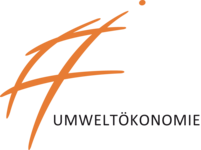PRODIGY - Process-based & Resilience-Oriented management of DIversity Generates sustainabilitY
Laufzeit: 01.06.2017 - 31.05.2018
Partner: Freie Universität Berlin, Leibniz Universität Hannover
Förderkennzeichen: 01LC1721A
Förderung durch: Bundesministerium für Bildung und Forschung
Projektmittel (€): 36236
Kurzfassung
Biodiversity related processes may occur at another scale than investigated. To overcome this obstacle, this inter- and transdisciplinary research consortium employs a multivariate and multi-scale approach. Thus functional biodiversity processes and their tipping points are more likely to be fully understood and unforeseen feedback loops overleaping scales identified. Such a holistic approach avoids snap-shot research on bare symptoms. In particular we aim at the most crucial aspect of...Biodiversity related processes may occur at another scale than investigated. To overcome this obstacle, this inter- and transdisciplinary research consortium employs a multivariate and multi-scale approach. Thus functional biodiversity processes and their tipping points are more likely to be fully understood and unforeseen feedback loops overleaping scales identified. Such a holistic approach avoids snap-shot research on bare symptoms. In particular we aim at the most crucial aspect of biodiversity in terms of successfully mainstreaming its value as a protectable good, by linking social cost-benefit analysis to dynamic ecological-economic models that explicitly represent biodiversity as a functional component of the ecosystem. This will allow us to explore how policies and land management strategies can operationalize the conservation of biodiversity as a valuable asset for ensuring human livelihood and maintaining socio- ecological system resilience in the face of climate change and economic shocks. At the triple frontier of Brazil, Peru and Bolivia, we presume perfect conditions for testing our approach in both natural and institutional systems. Our main objectives will be to (1) evaluate, compile, and analyse the data in order to identify knowledge gaps along with the best possible settings of research plots to address our research questions , (2) to identify stakeholder groups and institutional co-operations in all three countries and ensure their cooperation by embedding their needs and interests into our joint research concept, and (3) develop a sampling- and data-handling design tailored to the requirements of a state-of-the art multivariate modelling- approach which mirrors the extended obstacles imposed by the high levels of biophysical, cultural and societal diversity. Our tri-national study region is ideal for such studies since it holds a high level of diversity being threatened by intensified land-use change at all described scales.» weiterlesen» einklappen
